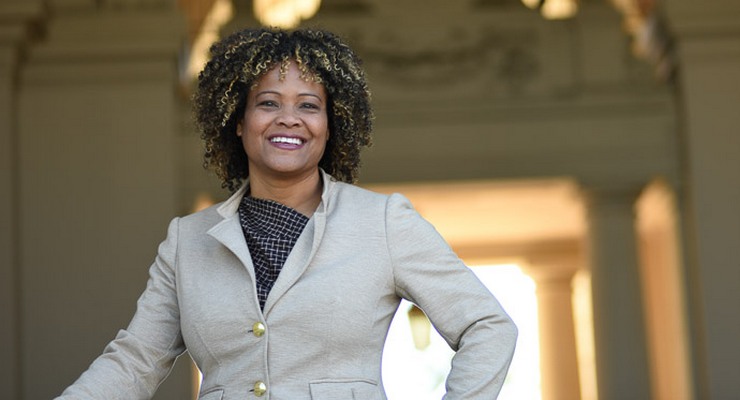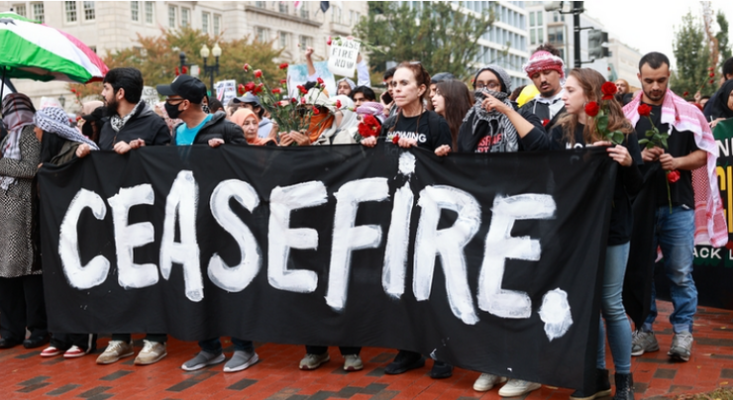
[Updated] District 2 City Council candidate Felicia Williams said she has been walking the North Central Pasadena district for nearly 10 months since she declared her candidacy, and almost immediately she saw the divisive politics in Washington hitting close to home.
“People said to me, I should only go to the Democratic households because of the Democratic primary,” Williams said. “[But] I went to every single door in the district. It doesn’t matter what your background was it didn’t matter where you lived.”
Williams is hoping to win the seat being vacated by three-term Councilmember Margaret McAustin, who announced in February she not seek reelection to support her husband John in his battle against cancer.
Three other District 2 candidates, Tricia Keane, Kevin Litwin and Boghos Patatian have also qualified for the election.
“I think that what we need at this time is someone who is more holistic, comprehensive, and has the ability to listen to different points of view,” Williams said. “I have an incredibly diverse background. I think most people don’t realize it, but I’m half African-American and half Filipino.”
Williams currently serves on the City’s Planning Commission and consults for cities financing large, mostly environmental, projects.
After graduating from Polytechnic School in Pasadena, Williams received her Bachelor’s degree in Public Policy from Stanford University, her Master’s degree in Urban Planning from UCLA, and an MBA in Finance from the University of Michigan Ross School of Business.
Her mother, a small business owner who immigrated from the Philippines, was “fairly conservative” and her African-Amerian father, who grew up the segregated south, was very liberal.
“I got two different sets of values, but what I found is that there was a place where these different views come together. So to me it’s not odd to have different points of view. I think it’s actually healthy. And so I have the ability to listen to different points of view without being judgmental because that’s essentially what I had to do growing up.”
Williams describes herself as socioeconomically diverse because her parents grew up low income.
“I have a lot of different perspectives. I’m also a finance person, but I also am a public policy person. So I just have the ability to see a lot of different sides of different issues.”
That skill could come in handy if she wins the election.
District 2 includes central and eastern portions of the city, including East Colorado Boulevard between Wilson and Oak Avenues, an area buzzing with residential development that has a strong Latino community and a burgeoning Armenian-American population. Over the past few years, the district has become a prime target for developers.
“The first thing I would do if I was elected is I would actually form a housing committee to go out and get data,” Williams said. “What are the actual vacancy rates, this is another sort of an anecdotal thing. A lot of these new buildings, a lot of the units are vacant and they’re leased, so they show as being occupied, but they actually are not occupied. And so that’s another big problem.”
Williams said the City should work to keep existing housing, because of the high costs associated with building new housing.
“You don’t have a really a straight finance person on that Council,” she said. “I think it’s a much-needed background. I understand the challenges the city is facing in balancing its budget. But here’s the key. When you skimp on investing in people, you will pay for it in the long run.”
Williams said that payback comes in the form of increased law enforcement, public health and social issues.
“For the past 15 to 20 years we have been building like crazy.
We’ve already been doing it for 20 years, but look at the result because we haven’t been focusing on that. We have increased traffic and emissions. We have a city that is becoming so expensive, the people who work here, especially police officers, can’t live here.”
“There are a lot of retired Pasadena employees that live in my district. Pasadena employees used to live here. It is different when you are working in a city that you live in, you treat it differently, you look at it differently. You interact with the residents differently.”
“You can see that with our planning department and our City employees, They interact with the city differently because they don’t live here. It’s not their community and it should be their community.”
Williams also believes the City is not going to build its way out of its homeless problem, but instead needs to broaden its partnerships.
“We do have a lot of services for homeless, but part of the issue is that Pasadena is taking this on by themselves.”
According to Williams, Pasadena should collaborate more closely with the other cities in the San Gabriel Valley to fight homelessness.
“This is a regional problem. This is not a Pasadena problem, right? So we should be working regionally.”
William said during her walking the worse thing she heard was a renter who said the City cares more about money than they care about people.
“That was really, really hard to hear,” she said. “The most positive thing was that although people have different ways of getting there, we all have the same goal of preserving our community, preserving the diversity and keeping people here in Pasadena.”
“That actually is what gives me hope.”














 0 comments
0 comments


